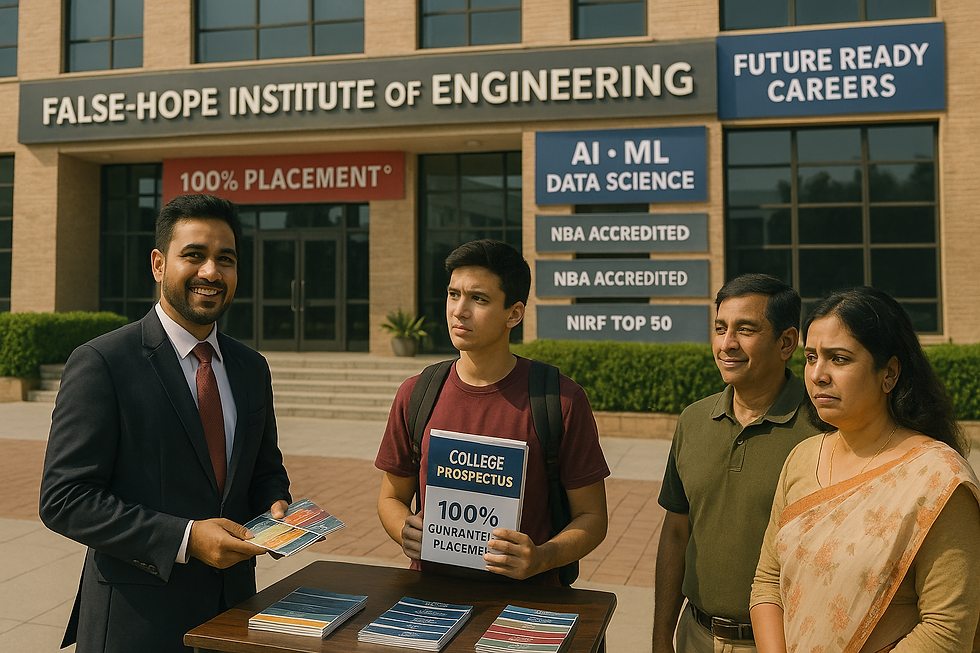The UGC's Bold Move: Stricter Monitoring of Faculty Appointments and PhD Degree Awards
- Dr. Deepessh Divaakaran

- May 27, 2023
- 3 min read

On April 24, 2023, during its 568th meeting, the University Grants Commission (UGC) made a crucial decision that will significantly impact higher educational institutions (HEIs) across India. Recognizing the pivotal role that these institutions play in nurturing intellectuals and fostering national growth, the UGC has resolved to tighten the reins on faculty appointments and the awarding of PhD degrees.
The quality of higher education is heavily reliant on the proficiency of educators and the promotion of research. To ensure this, the UGC has implemented regulations to establish minimum standards, including the UGC Regulations on Minimum Qualifications for Appointment of Teachers and Other Academic Staff in Universities and Colleges and Measures for the Maintenance of Standards in Higher Education, 2018, and the University Grants Commission (Minimum Standards and Procedures for Award of Ph.D. Degree) Regulations, 2022. These regulations are designed to maintain standards in the selection of teachers and the awarding of research degrees in HEIs.
However, there have been reported instances of violations of these regulations, leading to concerns from various stakeholders. This situation has necessitated a more stringent monitoring mechanism to ensure compliance with the regulations and to uphold the quality of higher education in India.
In response to the reported violations, the UGC has formed a Standing Committee. This committee will monitor the appointment of teachers and the award of PhD degrees in HEIs. It will meet regularly, select specific institutions, gather information on faculty appointments and PhD degree awards, verify documents to ensure compliance with UGC regulations, and recommend appropriate actions in case of any violations.
The UGC's decision will have far-reaching implications for all HEIs, both already accredited and those seeking accreditation. Any violation of the regulations can result in a decline of higher education standards and impact the overall educational environment.
For colleges that are already accredited, non-compliance with the UGC regulations could lead to complications during the re-accreditation process. Accrediting bodies such as the National Board of Accreditation (NBA) and the National Assessment and Accreditation Council (NAAC) consider faculty qualifications and research output as key factors during the assessment. Non-compliance could potentially affect their reputation and student enrollment.
For colleges seeking accreditation, compliance with the UGC regulations on faculty appointments and PhD degree awards is now more crucial than ever. Any non-compliance could lead to adverse outcomes in the accreditation process, which in turn could affect the institution's reputation and future prospects.
Institutes should prioritize ensuring compliance with UGC regulations to maintain or achieve their desired accreditation status. It will be necessary to invest in the recruitment process to attract qualified faculty and to promote a robust research environment that complies with the UGC's PhD degree award regulations. Regular internal audits could be a prudent step to ensure continued compliance with these regulations.
The UGC's decision emphasizes the importance of maintaining high standards in faculty appointments and PhD degree awards. As such, the accreditation bodies will likely scrutinize these areas even more closely in the future. This means that HEIs will need to be proactive and diligent in ensuring compliance with UGC regulations.
While the UGC's decision is a significant step towards ensuring quality higher education, it is not without potential drawbacks. Ensuring compliance with UGC regulations may require institutions to invest more resources in their recruitment and research processes. Moreover, the operational efficiency of the Standing Committee will be crucial. The committee will need to balance the rigorous monitoring process with the practical realities and challenges faced by HEIs.
The UGC's decision reflects its commitment to improving the quality of higher education in India. As the new measures are implemented, it will be important for all stakeholders to work together to ensure that these changes lead to the betterment of higher education in India. It is a call to action for HEIs to prioritize compliance with UGC regulations and uphold the highest standards in their teaching and research practices.




Comments